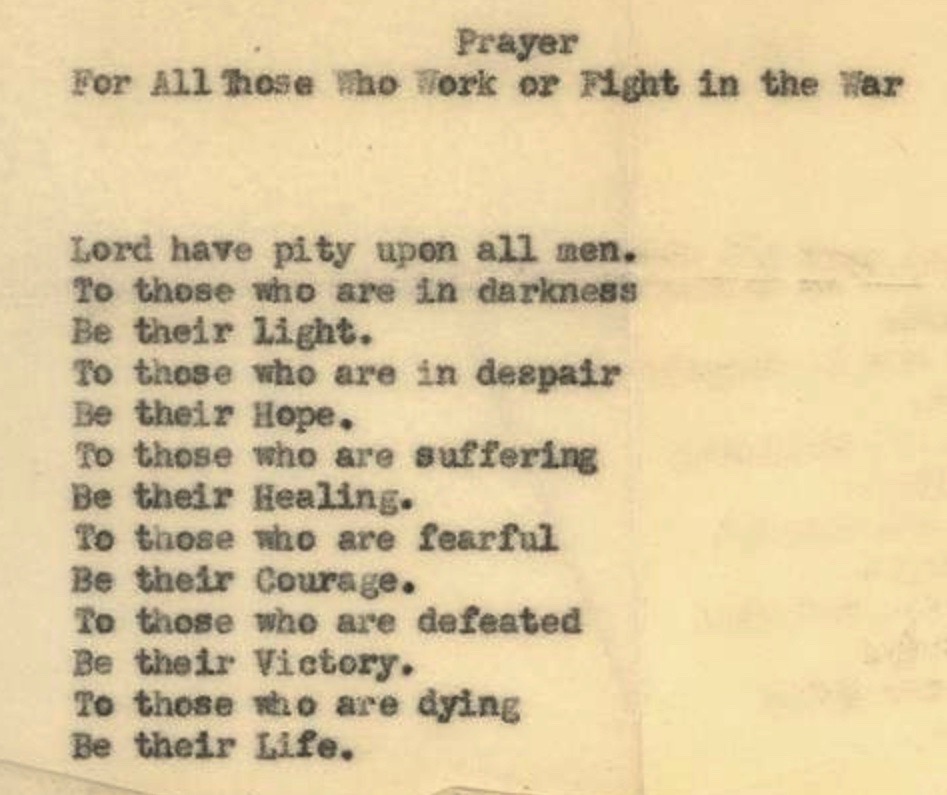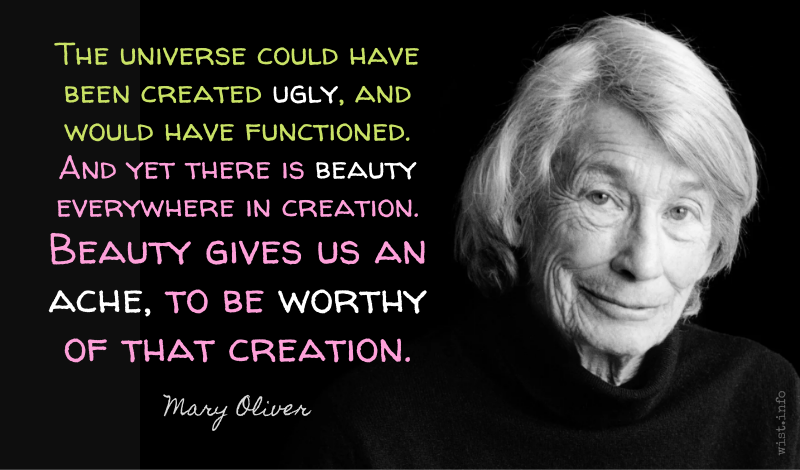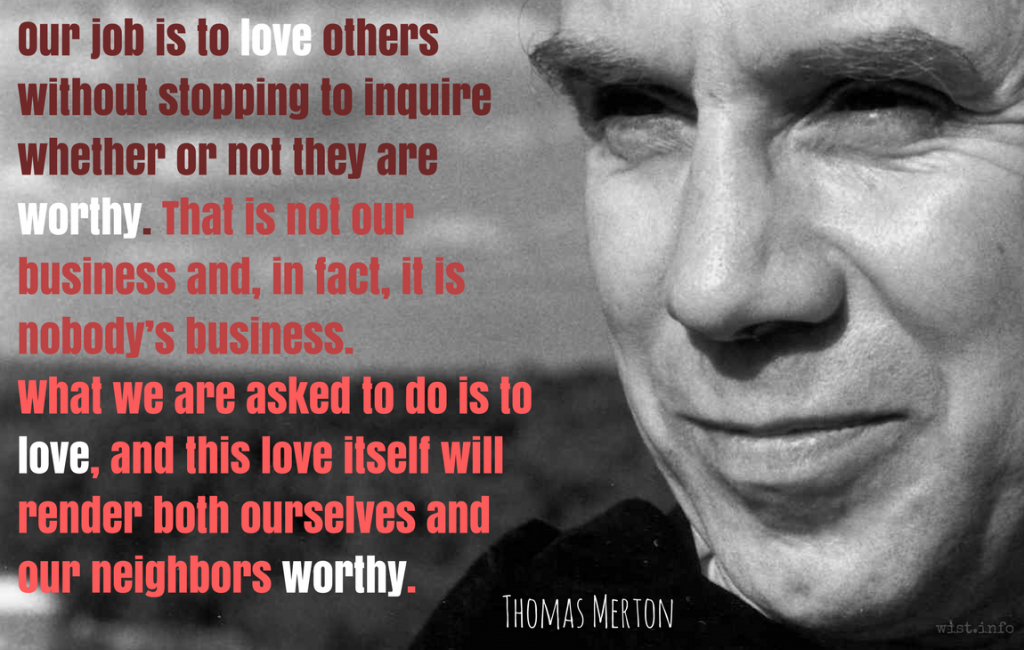Fear comes from uncertainty. When we are absolutely certain, whether of our worth or worthlessness, we are almost impervious to fear. Thus a feeling of utter unworthiness can be a source of courage.
Eric Hoffer (1902-1983) American writer, philosopher, longshoreman
The Passionate State of Mind, Aphorism 87 (1955)
(Source)
Quotations about:
worthiness
Note not all quotations have been tagged, so Search may find additional quotes on this topic.
To found the reward for virtuous actions on the approval of others is to choose too uncertain and shaky a foundation. Especially in an age as corrupt and ignorant as this, the good opinion of the people is a dishonor. Whom can you trust to see what is praiseworthy?
[De fonder la recompence des actions vertueuses, sur l’approbation d’autruy, c’est prendre un trop incertain et trouble fondement, signamment en un siecle corrompu et ignorant, comme cettuy cy la bonne estime du peuple est injurieuse. A qui vous fiez vous, de veoir ce qui est louable?]Michel de Montaigne (1533-1592) French essayist
Essays, Book 3, ch. 2 “Of Repentence [Du Repentir]” (1586) (3.2) (1595) [tr. Frame (1943)]
(Source)
This essay first appeared in the 1588 ed. The second sentence/phrase (on the age being so corrupt) and following were added for the 1595 ed.
(Source (French)). Alternate translations:
To ground the recompence of vertuous actions, upon the approbation of others, is to undertake a most uncertaine or troubled foundation, namely in an age so corrupt and times so ignorant, as this is: the vulgar peoples good opinion is injurious. Whom trust you in seeing what is commendable?
[tr. Florio (1603)]
To ground the Recompence of virtuous Actions upon the Approbation of others, is too uncertain and unsafe a Foundation; especially in so corrupt and ignorant an Age as this, the good Opinion of the Vulgar is injurious. Upon whom do you relie to shew you what is recommendable?
[tr. Cotton (1686)]
To ground the recompense of virtuous actions upon the approbation of others is too uncertain and unsafe a foundation, especially in so corrupt and ignorant an age as this, wherein the good opinion of the vulgar is injurious: upon whom do you rely to show you what is recommendable?
[tr. Cotton/Hazlitt (1877)]
To base the reward of virtuous actions on the approbation of others is to choose a too uncertain and obscure foundation. Especially in a corrupt and ignorant age like this, the good opinion of the vulgar is offensive; to whom do you trust to perceive what is praiseworthy?
[tr. Ives (1925)]
Basing the recompense of virtuous deeds on another’s approbation is to accept too uncertain and confused a foundation -- especially since in a corrupt and ignorant period like our own to be in good esteem with the masses is an insult: whom would you trust to recognize what was worthy of praise!
[tr. Screech (1987)]
The measure of achievement is not winning awards. It’s doing something that you appreciate, something you believe is worthwhile. I think of my strawberry souffle. I did that at least twenty-eight times before I finally conquered it.
She was of course only too good for him; but as nobody minds having what is too good for them, he was very steadily earnest in the pursuit of the blessing.
It’s simply not an adventure worth telling if there aren’t any dragons.
J.R.R. Tolkien (1892-1973) English writer, fabulist, philologist, academic [John Ronald Reuel Tolkien]
(Misattributed)
Variant: "It simply isn’t an adventure worth telling if there aren’t any dragons."
Actually found in Sara Ban Breathnach, Simple Abundance, "February 16: At the End of Our Exploring" (2005). Breathnach quotes an actual Tolkien warning about dragons earlier on the page, apparently leading people to misattribute this phrase of hers to Tolkien.
More discussion: Not a Tolkien quote: It simply isn't an adventure worth telling if there aren't any dragons - thetolkienist.com.
When a man boasted in his presence that he was a native of an illustrious city, he said, “That is not what one ought to look at, but whether one is worthy of a great city.”
[πρὸς τὸν καυχώμενον ὡς ἀπὸ μεγάλης πόλεως εἴη, “οὐ τοῦτο,” ἔφη, “δεῖ σκοπεῖν, ἀλλ᾽ ὅστις μεγάλης πατρίδος ἄξιός ἐστιν.”]
Aristotle (384-322 BC) Greek philosopher
Attributed in Diogenes Laërtius, Lives and Opinions of Eminent Philosophers [Vitae Philosophorum], Book 5, sec. 11 [tr. Yonge (1853)]
(Source)
(Source (Greek)). Alternate translations:
To one who boasted that he belonged to a great city his reply was, "That is not the point to consider, but who it is that is worthy of a great country."
[tr. Hicks (1925), sec. 19]
To a man boasting that he was from a great city, he said “Don’t look at this, but instead who is worthy of a great country.”
[tr. @sentantiq (2016)]
To someone who boasted that he came from a great city, he said, "That is not what one should consider, but who it is that is worthy of a great country."
[tr. Mensch (2018)]
Reproached one day because he gave alms to a good-for-nothing, he said, “It was the man that I pitied, not his conduct.”
[ὀνειδιζόμενός ποτε ὅτι πονηρῷ ἀνθρώπῳ ἐλεημοσύνην ἔδωκεν, “οὐ τὸν τρόπον,” εἶπεν, “ἀλλὰ τὸν ἄνθρωπον ἠλέησα.”]
Aristotle (384-322 BC) Greek philosopher
Attributed in Diogenes Laërtius, Lives and Opinions of Eminent Philosophers [Vitae Philosophorum], Book 5, sec. 11 [tr. Mensch (2018)]
(Source)
(Greek Source). Alternate translations:
On one occasion he was blamed for giving alms to a worthless man, and he replied, “I did not pity the man, but his condition.”
[tr. Yonge (1853)]
Being once reproached for giving alms to a bad man, he rejoined, "It was the man and not his character that I pitied."
[tr. Hicks (1925), sec. 17]
After he was reproached for giving money to a wretched man, he said, “It wasn’t the character, but the man I pitied.”
[tr. @sentantiq [2016)]
Once, he was reproached because he gave charity to a lowly person, so he said, "I gave charity to a man, not a way of life."
[Source, sec. 17]
You can tell the man who rings true from the man who rings false, not by his deeds alone, but also by his desires.
[Δόκιμος ἀνὴρ καὶ ἀδόκιμος οὐκ ἐξ ὧν πράσσει μόνον, ἀλλὰ καὶ ἐξ ὧν βούλεται.]
Democritus (c. 460 BC - c. 370 BC) Greek philosopher
Frag. 68 (Diels) [tr. Bakewell (1907)]
(Source)
Diels citation "68. (40 N.) DEMOKRATES. 33." Bakewell lists this under "The Golden Sayings of Democritus." Freeman notes this as one of the Gnômae, from a collection called "Maxims of Democratês," but because Stobaeus quotes many of these as "Maxims of Democritus," they are generally attributed to the latter.
Alternate translations:
- "A man is approved or rejected not only by what he doth, but by what he wills." [Hammond (1845)]
- "The worthy and the unworthy man are to be known not only by their actions, but also their wishes." [tr. Freeman (1948)]
- "One of esteem and one without it do not only act for different reasons but they desire for different reasons too." [tr. @sententiq (2018), fr. 67]
- "Accomplished or unaccomplished we shall call a man not only from what he does but from what he desires, too." [Source]
- "The worthy and unworthy are known not only by their deeds, but also by their desires." [Source]
Lord have pity upon all men.
To those who are in darkness
Be their light.
To those who are in despair
Be their Hope.
To those who are suffering
Be their Healing.
To those who are fearful
Be their Courage.
To those who are defeated
Be their Victory.
To those who are dying
Be their Life.Eleanor Roosevelt (1884-1962) First Lady of the US (1933-45), politician, diplomat, activist
“Prayer for All Those Who Work or Fight in the War”
(Source)
One of several prayers found in Roosevelt's wallet after her death. Author unknown. Another prayer found there:
Dear Lord, lest I continue in my complacent ways, help me to remember that somewhere someone died for me today. And if there be war, help me to remember to ask, "Am I worth dying for?"
Men of all races have always sought for a convincing explanation of their own astonishing excellence and they have frequently found what they were looking for.
Aubrey Menen (1912-1989) British writer, novelist, satirist, theatre critic
Dead Man in the Silver Market, ch. 1, opening lines (1954)
(Source)
The difficulty is not so much to die for a friend, as to find a friend worth dying for.
Henry Home, Lord Kames (1696-1782) Scottish jurist, agriculturalist, philosopher, writer
Introduction to the Art of Thinking, ch. 1, “Friendship” (1761)
(Source)
Often misattributed to Homer. See John 15:13.
The universe could have been created ugly, and would have functioned. And yet there is beauty everywhere in creation. Beauty gives us an ache, to be worthy of that creation.
Mary Oliver (1935-2019) American poet
Comments at Wellesley College (20 Oct 2010)
(Source)
The last phrase is frequently paraphrased, "We need beauty because it makes us ache to be worthy of it."
I am a democrat because I believe in the Fall of Man. I think most people are democrats for the opposite reason. A great deal of democratic enthusiasm descends from the ideas of people like Rousseau, who believed in democracy because they thought mankind so wise and good that everyone deserved a share in government. The danger of defending democracy on those grounds is that they’re not true. And whenever their weakness is exposed, the people who prefer tyranny make capital out of the exposure. I find that they’re not true without looking further than myself. I don’t deserve a share in governing a hen-roost, much less a nation. Nor do most people — all the people who believe advertisements, and think in catchwords and spread rumours. The real reason for democracy is just the reverse. Mankind is so fallen that no man can be trusted with unchecked power over his fellows. Aristotle said that some people were only fit to be slaves. I do not contradict him. But I reject slavery because I see no men fit to be masters.
HENRY: Rather proclaim it, Westmoreland, through my host,
That he which hath no stomach to this fight,
Let him depart; his passport shall be made,
And crowns for convoy put into his purse:
We would not die in that man’s company,
That fears his fellowship to die with us.William Shakespeare (1564-1616) English dramatist and poet
Henry V, Act 4, sc. 3, l. 37ff (4.3.37-42) (1599)
(Source)
Our job is to love others without stopping to inquire whether or not they are worthy. That is not our business and, in fact, it is nobody’s business. What we are asked to do is to love, and this love itself will render both ourselves and our neighbors worthy.
Thomas Merton (1915-1968) French-American religious and writer [a.k.a. Fr. M. Louis]
Disputed Questions, “The Power and Meaning of Love” (1953)
(Source)
Base and absurd requests he should reject, not harshly but gently, informing the askers by way of consolation that the requests are not in accord with their own excellence and reputation.
In giving of thy alms, inquire not so much into the person, as his necessity. God looks not so much upon the merits of him that requires, as into the manner of him that relieves; if the man deserve not, thou hast given it to humanity.
Posterity! You will never know, how much it cost the present Generation, to preserve your Freedom! I hope you will make a good Use of it. If you do not, I shall repent in Heaven, that I ever took half the Pains to preserve it.
John Adams (1735-1826) American lawyer, Founding Father, statesman, US President (1797-1801)
Letter to Abigail Adams (26 Apr 1777)
(Source)
Kindness consists in part, perhaps, in esteeming and loving people more than they deserve; but then there is a measure of prudence in believing that people are not always equal to what they are taken for.
[Une partie de la bonté consiste peut-être à estimer et à aimer les gens plus qu’ils ne le méritent; mais alors une partie de la prudence est de croire que les gens ne valent pas toujours ce qu’on les prise.]Joseph Joubert (1754-1824) French moralist, philosopher, essayist, poet
Pensées [Thoughts], ch. 5 “Des Passions et des Affections de l’Âme [On the Soul],” ¶ 66 (1850 ed.) [tr. Attwell (1896), ¶ 71]
(Source)
(Source (French)). Alternate translation:
A part of goodness consists, perhaps, in esteeming and loving people more than they deserve; but then a part of prudence is to believe that people are not always worth what we rate them at.
[tr. Calvert (1866), ch. 5]
Commonly truncated and paraphrased as:
A part of kindness consists in loving people more than they deserve.
[E.g. (1935)]
(Sometimes the "A part of" is left off as well.)
To believe that if we could have but this or that we would be happy is to suppress the realization that the cause of our unhappiness is in our inadequate and blemished selves. Excessive desire is thus a means of suppressing our sense of worthlessness.
Eric Hoffer (1902-1983) American writer, philosopher, longshoreman
The Passionate State of Mind, Aphorism 6 (1955)
(Source)
Do not worry if you are without a position; worry lest you do not deserve a position. Do not worry if you are not famous; worry lest you do not deserve to be famous.
[不患無位、患所以立、不患莫己知、求爲可知也]
Confucius (c. 551- c. 479 BC) Chinese philosopher, sage, politician [孔夫子 (Kǒng Fūzǐ, K'ung Fu-tzu, K'ung Fu Tse), 孔子 (Kǒngzǐ, Chungni), 孔丘 (Kǒng Qiū, K'ung Ch'iu)]
The Analects [論語, 论语, Lúnyǔ], Book 4, verse 14 (4.14) (6th C. BC – AD 3rd C.) [tr. Leys (1997)]
(Source)
(Source (Chinese)). See also 1.16, 14.30, 15.19. Alternate translations:
A man should say, I am not concerned that I have no place, I am concerned how I may fit myself for one. I am not concerned that I am not known, I seek to be worthy to be known.
[tr. Legge (1861)]
One should not be greatly concerned at not being in office; but rather about the requirements in oneself for such a standing. Neither should one be so much concerned at being unknown; but rather with seeking to become worthy of being known.
[tr. Jennings (1895)]
Be not concerned for want of a position; be concerned how to fit yourself for a position. Be not concerned that you are not known, but seek to do something to deserve a reputation.
[tr. Ku Hung-Ming (1898)]
One should not be concerned at lack of position; but should be concerned about what will fit him to occupy it. One should not be concerned at being unknown; he should seek to be worthy of being known.
[tr. Soothill (1910)]
Not worried at being out of a job, but about being fit for one; not worried about being unknown but about doing something knowable.
[tr. Pound (1933)]
He does not mind not being in office; all he minds about is whether he has qualities that entitle him to office. He does not mind failing to get recognition; he is too busy doing the things that entitle him to recognition.
[tr. Waley (1938)]
Do not worry about not holding high position; worry rather about playing your proper role. Worry not that no one knows of you; seek to be worth knowing.
[tr. Ware (1950)]
Do not worry because you have no official position. Worry about your qualifications. Do not worry because no one appreciates your abilities. Seek to be worthy of appreciation.
[tr. Lau (1979)]
One is not worried about not holding position; one is worried about how one may fit oneself for appointment. One is not worried that nobody knows one; one seeks to become fit to be known.
[tr. Dawson (1993)]
Do not worry about having no office; rather, worry about whether you deserve to stand in that office. Do not worry about nobody knowing you; rather, seek to be worth knowing.
[tr. Huang (1997)]
Do not worry about not being on the position, just worry about my quality on the position. Do not worry about that nobody understand me, just seek I can be understood.
[tr. Cai/Yu (1998), #81]
Do not worry over not having an official position; worry about what it takes to have one. Do not worry that no one acknowledges you; seek to do what will earn you acknowledgment.
[tr. Ames/Rosemont (1998)]
He does not worry that he has no position; he worries about whether he is qualified to hold one. He does not worry that no one recognizes his worth; he seeks to become worthy to be recognized.
[tr. Brooks/Brooks (1998)]
Don't worry if you have no position: worry about making yourself worthy of one. Don't worry if you aren't known and admired: devote yourself to a life that deserves admiration.
[tr. Hinton (1998)]
Do not be concerned that you lack an official position, but rather concern yourself with the means by which you might become established. Do not be concerned that no one has heard of you, but rather strive to become a person worthy of being known.
[tr. Slingerland (2003)]
Don’t worry that you have no position -- worry about how you can qualify for one. Don’t worry that people don’t know you -- look for some reason to become known.
[tr. Watson (2007)]
Do not worry that you have no official position. Worry about tnot having the qualifications to deserve a position. Do not worry that others do not know you. Seek to be worthy of being known.
[tr. Annping Chin (2014)]
You should not worry about not getting an official appointment. You should instead worry about whether you have the capability to take that assignment. You should not worry that people do not know you. You should instead strive for remarkable achievement.
[tr. Li (2020)]
True merit, like a river, the deeper it is, the less noise it makes.
George Savile, Marquis of Halifax (1633-1695) English politician and essayist
“Some Cautions Offered to the Consideration of Those Who Are to Choose Members to Serve in the Ensuing Parliament,” sec. 16 (1695)
(Source)
When you see someone who is worthy, concentrate upon becoming their equal; when you see someone who is unworthy, use this as an opportunity to look within yourself.
[見賢思齊焉、見不賢而內自省也。]
Confucius (c. 551- c. 479 BC) Chinese philosopher, sage, politician [孔夫子 (Kǒng Fūzǐ, K'ung Fu-tzu, K'ung Fu Tse), 孔子 (Kǒngzǐ, Chungni), 孔丘 (Kǒng Qiū, K'ung Ch'iu)]
The Analects [論語, 论语, Lúnyǔ], Book 4, verse 17 (4.17) (6th C. BC – AD 3rd C.) [tr. Slingerland (2003)]
(Source)
(Source (Chinese)). Alternate translations:
When we see men of worth, we should think of equaling them; when we see men of a contrary character, we should turn inwards and examine ourselves.
[tr. Legge (1861)]
When you meet with men of worth, think how you may attain to their level; when you see others of an opposite character, examine yourself.
[tr. Jennings (1895)]
When we meet with men of worth, we should think how we may equal them. When we meet with worthless men, we should turn into ourselves and find out if we do not resemble them.
[tr. Ku Hung-Ming (1898)]
When you see a man of worth, think how to rise to his level. When you see an unworthy man, then look within and examine yourself.
[tr. Soothill (1910)]
See solid talent and think of measuring up to it; see the un-solid and examine your own insides.
[tr. Pound (1933)]
In the presence of a good man, think all the time how you may learn to equal him. In the presence of a bad man, turn your gaze within!
[tr. Waley (1938)]
When you see a man of the highest caliber, give thought to attaining his stature. When you see one who is not, go home and conduct a self-examination.
[tr. Ware (1950)]
When you meet someone better than yourself, turn your thoughts to becoming his equal. When you meet someone not as good as you are, look within and examine your own self.
[tr. Lau (1979)]
When you come across a superior person, think of being equal to him. When you come across an inferior person, turn inwards and examine yourself.
[tr. Dawson (1993)]
When you see a worthy man, seek to emulate him. When you see an unworthy man, examine yourself.
[tr. Leys (1997)]
On seeing a worthy man, think of equalling him; on seeing an unworthy man, examine yourself inwardly.
[tr. Huang (1997)]
One should think to follow the sagaciousness when one sees it; One should examine onceself when one sees the no sagaciousness.
[tr. Cai/Yu (1998), #83]
When you meet persons of exceptional character think to stand shoulder to shoulder with them; meeting persons of little character, look inward and examine yourself.
[tr. Ames/Rosemont (1998)]
When he sees a worthy man, let him think how he might come up to him; when he sees an unworthy man, let him examine within himself.
[tr. Brooks/Brooks (1998)]
In the presence of sages, you can see how to perfect your thoughts. In the presence of folls, you must awaken yourself.
[tr. Hinton (1998)]
When you see a worthy person, think about how you can equal him. When you see an unworthy person, reflect on your own conduct.
[tr. Watson (2007)]
When you meet a worthy person, think how you could become his equal. When you meet an unworthy person, turn inward and examine your own conduct.
[tr. Chin (2014)]
When you meet a virtuous person, you should strive to emulate his virtues. When you meet a person void of virtue, you should consider whether you have the same flaws.
[tr. Li (2020)]


























